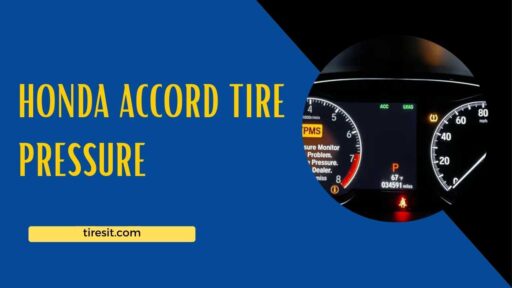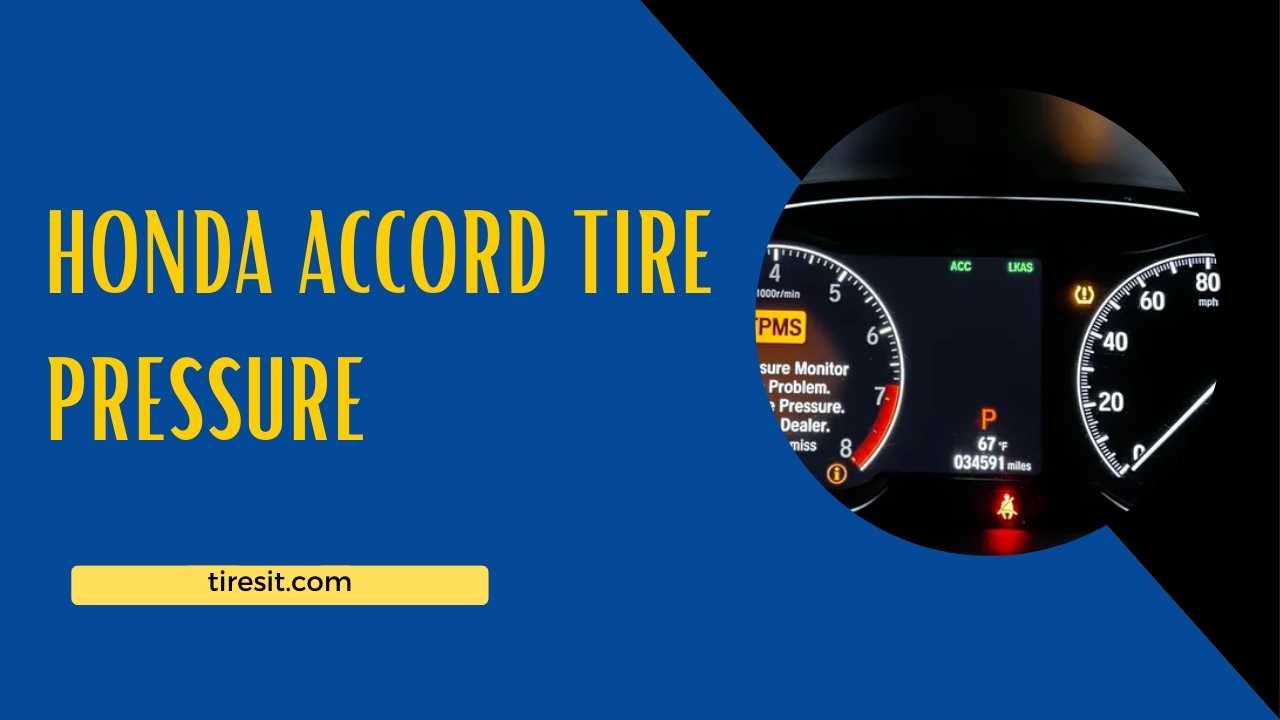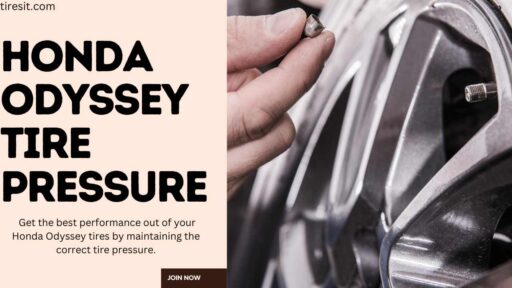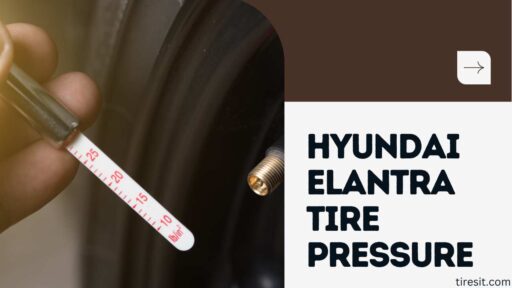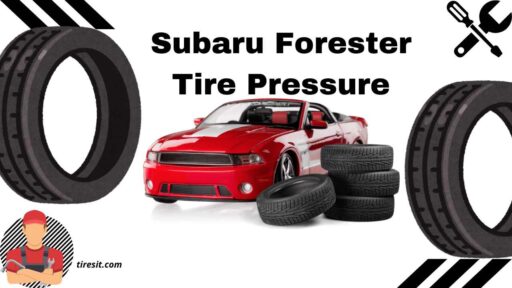I am a seasoned motor vehicle enthusiast and loyal Honda Accord Tire Pressure owner. I know the effects of tire care on vehicle performance and safety. Maintaining tire pressure is one thing that many drivers overlook in car maintenance. This handbook is the last one. It will focus a lot on the smallest parts of the Honda Accord tire pressure. It will enlighten you and give you practical tips. They will help ensure that your car tows smoothly and safely.
Importance of maintaining Optimal Tire Pressure
Tire pressure measures the amount of air within a vehicle’s tires, a critical element for various reasons. First, the importance of having properly inflated tires cannot be overstated. It’s vital for one’s safety and that of other road users. This ensures they are grounded.
It gives them better handling and stopping abilities from more traction and a good foundation. Furthermore, optimum tire pressure significantly improves their lifespan. If tires are under or overinflated, these could wear out unevenly, necessitating early buying of new ones. Lastly, fuel efficiency is linked to tire inflation rates. Proper tire pressure reduces rolling resistance. This makes it easier for an engine to perform with less effort, increasing its efficacy.
Again, proper tire pressure management helps reduce gas emissions. They result from low fuel consumption. It also saves you from unwanted costs. These include extra fuel purchases and early tire replacements. Lastly using well-inflated tyros feels better resulting in more enjoyable driving experience.
Understanding Honda Accord Tire Pressure Tyra Pressure Recommendations
The recommended tire pressures are in the owner’s manual and on a sticker on the driver’s doorjamb (for my car, a Honda Accord Tire Pressure Accord).
For example, tire pressures vary depending on the year model, size of tire & load used by those cars such as Honda Accords. Usually, this ranges between 30 to 35 psi (pounds per square inch). You may need to know the details of your car. Each car has a slightly different right pressure. Manufacturers say you should have these pressures in cold tires. Cold tires are ones that have not been driven for at least three hours or less than a mile. They were driven at a moderate speed.
The type pressure must be adjusted according to how much load is being carried by the vehicle. If you plan to carry more passengers or heavy bags, then you might consider raising the tire pressure a bit from its normal level. This is to handle the extra weight.
Effects of Underinflated and Overinflated Tires on Honda Accord
There are several negative consequences of driving a Honda Accord Tire Pressure Accord Tire Pressure with under-inflated tires. As mentioned before, low air pressure increases the Konak area. This means more heat is released, and higher friction occurs between the tire’s treads and the road. This results in overheating of tires due to extra heating, causing rapid wear out of tires, including bursting them. Moreover, low-inflation tires hinder good handling, making it harder to control vehicles.
Over inflating tires also has its own problems too. When tires are overfilled past recommended levels, they become less springy. They also become prone to damage by road litter and potholes. This also hurts traction, reducing comfort and safety. This is especially true when wet conditions can be expected. It raises hydroplaning risks. Rainy weather can make driving dangerous. It lowers the contact patch, increasing hydroplaning and accident risks.
Both the fuel consumption of a car can be decreased by underinflation and over inflation. Maintaining correct tire pressure is one way to drive Honda Accord comfortably and economically.
How to Check Honda Accord Tire Pressure
Checking tire pressure on your Honda Accord should not be such an intricate process as it only needs to be done periodically. It is therefore recommended that you have a reliable device for checking tire pressure. These gauges may either be digital, dial, or stick type. My preference is the digital ones because they are simple to use while still providing accurate results.
Make sure that the tires are cold before taking any readings – haven’t driven for at least three hours. Take off valve cap from any of the tyres and push the tyre gauge onto the valve stem hard enough so as to obtain a reading. Compare this figure with recommended pressure for your vehicle.Do this also for all four tyres and if you have one, spare tyre too.
Till the gauge shows proper air pressure, deflate if more than needed; add some air if less. Most filling stations have air pumps available, or better still, use portable compressors.
The Factors Beyond Your Control
It’s not about just setting your car’s tire pressure once forever. Tire pressure always fluctuates, brought about by several factors, both controllable and uncontrollable.
Temperature’s Tiresome Role
Did you know that every 10-degree drop in temperature could cause your tire’s PSI to decrease by 1-2? The winter freeze-ups do not just affect engines but also alter your tires’ pressures.
Habits Can Shape Pressure
Are you sliding around corners like you’re racing at Le Mans or stopping dead in your tracks like an out-of-control train? Such actions might result into uneven wearing that makes all tires’ pressures become different from each other.
The Once-Over
No matter how much mileage piles up or whether there has been sudden pothole hit, make sure that you visually inspect your tires for any possible problems on regular basis.
Tips for Maintaining Optimal Tire Pressure
To ensure that the right tire pressure is always maintained on your Honda Accord, frequent checkups and adjustments are necessary. Here are some tips to help you keep your tires in top shape:
Check Tire Pressure Monthly: Over time, especially with temperature changes and natural permeation, tires lose air even without leaks.
Be Mindful of Temperature Changes: When cold, pressure drops whereas during warm periods it rises. Always adjust tire pressure when season changes significantly.
Use a Quality Tire Pressure Gauge: Get a good gauge and use it exclusively for accurate readings.
Keep Valve Caps Secured: Once you have checked the tire pressure, replace them so as to prevent dirt and moisture from entering the tire, leading to leakage.
Don’t Forget the Spare: A lot of times spare tire can be underinflated exactly when you need it most.
By following these tips, you will make sure that your tires always have the correct amount of pressure, which helps them last longer while keeping your car’s performance at its best.
The Role of Tire Pressure Monitoring Systems (TPMS) in Honda Accord
Most modern cars, including Honda Accords, have TPMS (Tyre Pressure Monitoring System). This system is up-to-date as it keeps track of each tire’s PSI all time round- it signals if there is a fall below a certain level.
For any vehicle, it is important to maintain the correct tire pressure, which can be facilitated through TPMS. It does all the guesswork for you and warns you of probable low air pressure before it becomes hazardous. However, although TPMS has its advantages, manual checks cannot be substituted. Nonetheless, tire gauge use is vital to ensure that TPMS sensors are within an acceptable range because they may differ by a few psi in accuracy at times.
Make sure that you regularly check if your TPMS is working and take action as soon as possible when the warning light comes on. Remember, after every 5-10 years, the batteries of TPMS sensors should be replaced; hence, if your Accord fits into this category and its TPMS light comes on, then it might signal about changing them.
How Can I Fix Common Tire Pressure Problems?
Even when properly maintained, there can be some tire pressure problems with Honda Accords. Among these are:
- Slow leaks: These result from punctures, damaged wheels, or faulty valve stems. If your tires leak air slowly continuously, take them to a professional who will inspect and repair them.
- TPMS Warning Light: This indicates that one or more tires are significantly under-inflated when lit constantly while driving while any flickering could imply issues with the system itself.
- Over inflation After Service: At times, mechanics may overfill tires with too much air. Always double-check their inflation level after any maintenance job.
While troubleshooting, search for obvious signs of damage such as cuts in tires or bulges or things like nails sticking out of tread surfaces of your tires but first you must use a gauge to determine appropriate inflation.
What Are The Best Practices For Inflating Or Adjusting Tire Pressure On A Honda Accord?
You can easily inflate and adjust tire pressure on your Honda Accord; however, always follow the best procedures for accurate results and increased safety.
- Firstly, begin by using high-quality calibrated tire gauges. Stick to one gauge only. Inflate your tires up to the recommended pressure but not the maximum pressure that is indicated on the sidewall of a tire. (35 words)
- Bear in mind that air pumps from gas stations might be off target, hence, you can overinflate slightly when using them and then release some air to maintain desired levels as per your gauge. Since this means there has been no significant change in their temperatures after driving for several kilometers, take time and check again.
What Can I Do To Make My Honda Accord Tires Last Longer And Ensure That They Are In Top Shape?
Several advantages come with regular checking of tire air pressure for Honda Accords. As such, it promotes better hold and control while driving. Thus, safer rides lead to uniform tread wear, thus enhancing its longevity and eventually saving money.
Another thing is that fuel economy can also be influenced by the right tire pressure. According to the US Department of Energy, proper inflation levels can increase gas mileage by approximately 0.6 percent on average (up to 3 percent in some instances), and over-inflating them could save you a lot within one year.
Lastly, it is environmentally friendly to keep tires at optimal air levels because this would translate to less fuel consumption, besides minimizing waste from worn-out treads that end up in landfills throughout America.
What is the ideal tire pressure for my Honda Accord?
The recommended tire pressure range for a Honda Accord Tire Pressure Accord is 30-35 psi; however, you should always check your model’s user manual or the sticker located on the driver’s side door frame.
How often do I need to measure tire pressure in a car?
I suggest taking measurements of your tire pressure no less than once per month and before those long drives as well. Furthermore, any noticeable change in ambient temperature influencing tire pressures needs to be taken into account.
Can TPMS be fully relied upon to avoid potentially damaging underinflation of tires installed on my Honda Accord?
While TPMS is helpful, it cannot exclude all other methods used to check tire pressures. It requires regular manual checks with a gauge so that one can get accurate results.
What if my car’s TPMS warning light comes on while driving my Honda Accord?
If such happens when your vehicle’s “tire” indicator lamp turns on, ensure you have checked all tires, including spare ones, and adjust them accordingly as per requirements. You need to go back for service at your dealership or see a mechanic if it blinks.
Is it OK driving with soft tires?
You can safely drive short distances with slightly deflated tires until you reach the next petrol station. However, prolonged under-inflation leads to damage, which we should abstain from at all costs.
Closing: The Importance of Maintaining Proper Tire Pressure for a Smooth and Safe Honda Accord Driving Experience
Conclusion of Honda Accord Tire Pressure
Optimal tire pressure maintenance, a key element in owning a Honda Accord Tire Pressure Accord, is crucial. Besides vehicle safety and dependability, proper type pressure enhances their lifetime making them more fuel efficient machines. This ensures smooth rides that are also safe by following the recommended tiring pressures, using TPMS tools and regularly performing checks & adjustments.

